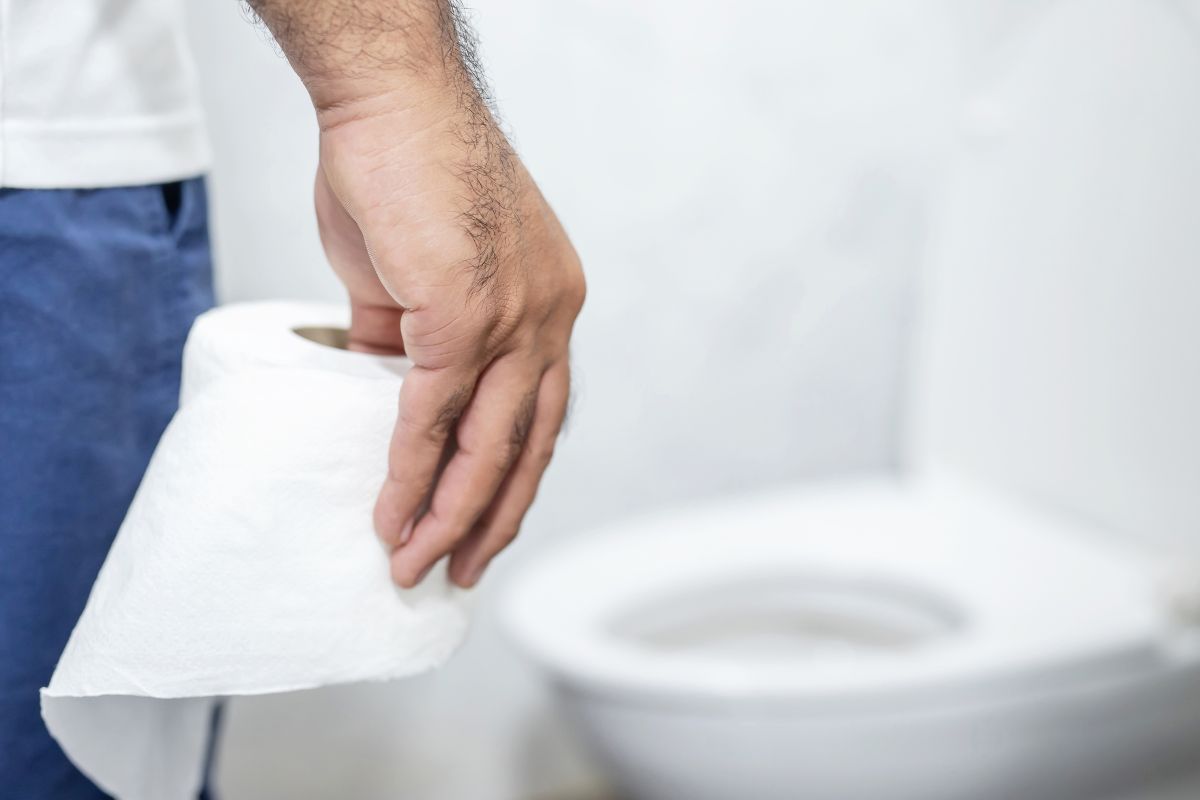Posts posted by XCR1250
-
-
-
-
-
Trump's Commerce Secretary Says Future of American Manufacturing is 'Tradecraft' Jobs That Only Require High School Education - 'Great jobs that Start in $80,000'Sat, May 24, 2025 at 8:31 AM CDT 4 min read
President Donald Trump's push to bring back manufacturing to the U.S. from abroad has forced major companies to rethink their entire business models and invest in the country.
Earlier this year, Apple (NASDAQ:AAPL) announced plans to invest $500 billion in the U.S. to expand its manufacturing in the country, while Nvidia (NASDAQ:NVDA) said last month that it will produce AI servers worth up to $500 billion in the U.S. Other major tech giants, including Amazon (NASDAQ:AMZN), Alphabet (NASDAQ:GOOG, GOOGL)) and IBM (NYSE:IBM), have also announced their U.S. investment plans.
In an interview with CNBC last month, U.S. Commerce Secretary Howard Lutnick talked about the progress the Trump administration has made so far in reshoring key manufacturing. Lutnick said the U.S. needs to cut its reliance on foreign manufacturing for national security and economic progress.
‘Jobs of the Future'
Asked how the U.S. would secure the workforce needed for manufacturing, Lutnick said community colleges need to start training people for "jobs of the future" based on a "new model" where American families would work in major manufacturing plants.
"It's time to train people not to do the jobs of the past, but to do the great jobs of the future," Lutnick said. "You know, this is the new model where you work in these kinds of plants for the rest of your life and your kids work here and your grandkids work here."
Lutnick called his proposed model the "future" of American manufacturing and said it would create job opportunities with salaries starting around $80,000 and rising to as much as $200,000.
"This is tradecraft. This is high school-educated, great jobs that start in the 80s and 90s and go up to one hundred and fifty to two hundred thousand dollars," according to Lutnick. "We are going to drive the high-value, high-performance jobs to America."
Lutnick's model assumes that the "rest of the world" will make "low-value" products and sell to the U.S. "inexpensively," he said.
When asked about the potential impact of automation and robotics on manufacturing, Lutnick said that even highly automated plants need humans to operate and fix equipment.
"What you're going to see is a highly automated plant that employs three thousand people per plant," he said. "You’ve got to remember these plants, all these automated arms and stuff. They need to be fixed. They all need a technician to fix them."
Lutnick emphasized that bringing critical manufacturing back to the U.S. has national security significance, adding that without domestic semiconductor production, the country cannot build drones or fighter jets for its defense.
He also highlighted the importance of automobile manufacturing, connecting it to the production of military equipment.
"Why do you need to make autos? Because if you decide you want to make tanks and you want to make trucks and in military, if you don't have steel, if you don't have aluminum, if you don't have cars, you know what you are? You're nowhere," he said.
-
On 5/12/2025 at 5:57 AM, Crnr2Crnr said: World's Largest Exporter of Toilet Paper Pulp Sends Update on Shortages
https://www.mensjournal.com/news/worlds-largest-toilet-paper-pulp-exporter-sends-update-shortages
the toilet paper memes in 2020 were the best part of the global pandemic
Toilet paper will soon disappear and here’s what will replace it.
Published on 05/23/2025 at 5:31 pm·Written by Tricia Richards·It will take you : 4 minutes

© Stewartville Star - Toilet paper will soon disappear and here’s what will replace it.
Show table of content
The transition away from toilet paper represents a significant shift in personal hygiene practices. Environmental concerns, health implications, and cultural preferences are driving this change toward more sustainable alternatives. The traditional bathroom staple we’ve relied on for generations faces mounting scrutiny as ecological awareness grows and innovative solutions emerge.
The surprising environmental impact of toilet paper usage
Most consumers mistakenly believe toilet paper is environmentally friendly because it’s biodegradable. This common misconception overlooks the substantial environmental footprint of its production and distribution. The manufacturing process requires vast amounts of fresh wood pulp, especially for ultra-soft varieties that prioritize comfort over sustainability.
Each year, millions of trees are harvested specifically for toilet paper production. The premium brands that advertise superior softness typically contain higher percentages of virgin wood pulp rather than recycled materials. This increased demand for fresh fiber contributes significantly to deforestation rates globally.
NewsYour tomatoes will be even better if you plant this herb right next to them.
Water consumption presents another environmental concern in toilet paper production. Manufacturing facilities use tremendous amounts of water to process wood into paper products. Additionally, the chemical treatments required to whiten and soften toilet paper introduce potential toxins into waterways when improperly managed.
Research from the University of Florida revealed particularly troubling findings about toilet paper composition. Scientists collected samples from various regions worldwide and discovered what they termed “forever contaminants” – chemicals that persist in the environment indefinitely. These substances potentially pose long-term health risks similar to those found in commonly overlooked dirty areas in our homes.
The environmental toll extends beyond production to disposal issues. While toilet paper breaks down more readily than plastic products, the sheer volume consumed globally creates significant waste management challenges for municipal systems not designed to handle such quantities.
Historical perspective on bathroom hygiene evolution
The concept of specialized paper for personal cleansing traces back thousands of years. Ancient Chinese texts from the 6th century BCE reference early forms of toilet paper, though these hardly resembled today’s perforated rolls. For centuries, various cultures developed their own solutions, from communal sponges in ancient Rome to cloth in medieval Europe.
Modern toilet paper as we recognize it emerged much later. Joseph Gayetty introduced the first commercially available toilet paper in the United States during the mid-19th century. His medicated paper sheets represented a significant advancement in hygiene technology. The roll format we now consider standard wasn’t patented until 1891.
Throughout history, toilet paper has demonstrated remarkable cultural significance, particularly during crises. The 2020 COVID-19 pandemic vividly illustrated this when panic buying emptied store shelves worldwide. This phenomenon revealed how deeply ingrained toilet paper has become in our hygiene expectations.
Interestingly, many regions never adopted toilet paper as their primary cleansing method. Countries throughout the Middle East, North Africa, and Southeast Asia traditionally use water-based cleaning techniques. Nations like Egypt, Jordan, and India typically feature bathrooms with specialized water delivery systems rather than toilet paper dispensers. These water-based approaches might offer inspiration for cleaning solutions that eliminate stubborn residue more effectively.
Water-based alternatives gaining popularity worldwide
Bidets represent the most established toilet paper alternative, offering thorough cleaning with minimal environmental impact. Traditional porcelain bidets have existed for centuries in European countries, particularly France and Italy. These standalone fixtures use precisely directed water streams for cleaning, eliminating the need for paper products entirely.
NewsAfter 60, walk this distance every day to live longer, according to science.
Modern electronic bidets have revolutionized this concept with enhanced features. Current models incorporate adjustable water temperature, pressure settings, and even warm air dryers. Japanese toilet technology leads this innovation space with sophisticated units that combine washing and drying functions. These advanced systems provide superior hygiene while drastically reducing paper waste.
For those unable to install permanent fixtures, portable bidet bottles offer an accessible alternative. These affordable, compact devices deliver targeted water streams without requiring plumbing modifications. Their increasing popularity demonstrates growing consumer awareness about both environmental and hygienic advantages of water-based cleaning.
Health professionals increasingly recommend water cleaning over paper wiping for several reasons. Water more effectively removes bacteria and residue, potentially reducing irritation and infection risks. This approach proves particularly beneficial for individuals with certain medical conditions or sensitivities. The gentle cleaning action of water works similarly to how certain pantry ingredients excel at removing tough stains without causing damage.
Sustainable textile solutions entering the market
Reusable cloth toilet paper presents an emerging eco-conscious alternative. Typically crafted from organic cotton or bamboo fibers, these washable squares provide a soft, effective cleaning option. Users generally store used cloths in dedicated containers before laundering them for reuse. This approach virtually eliminates ongoing waste while reducing long-term household expenses.
NewsNo one does it, yet this method eliminates 90% of pesticides on your fruits and vegetables.
Critics initially express concern about hygiene aspects of reusable options. However, proper washing processes effectively sanitize these products. Most manufacturers recommend hot water washing with specific detergents to ensure complete cleanliness. The growing acceptance of reusable menstrual products has helped normalize similar approaches to bathroom hygiene.
Bamboo-based disposable alternatives offer a middle-ground solution for those hesitant about fully reusable products. These papers biodegrade substantially faster than traditional toilet paper while requiring fewer resources to produce. The rapid growth rate of bamboo makes it significantly more sustainable than wood pulp. This natural resource approach mirrors how certain Asian cultures utilize specific plants for health benefits beyond their primary purpose.
Technology continues advancing in this space with innovative hybrid solutions. Some companies now develop products incorporating water-activated cleansing agents on biodegradable bases. Others focus on creating truly flushable alternatives that disintegrate completely in sewer systems without causing blockages. These technological innovations reflect similar advancements in other personal care sectors, such as revolutionary skincare products that address aging concerns.
The transition away from traditional toilet paper represents part of a broader shift toward more sustainable daily practices. As consumers increasingly prioritize environmental impact in purchasing decisions, manufacturers respond with more innovative, responsible alternatives. This evolution in bathroom hygiene parallels changes in other aspects of modern life, including how we manage our digital privacy and technology use.
-
-
-
-
-
-
-
-
-
43 minutes ago, Deephaven said: Are you as dumb as Lloyd and need the Internet to think for you? Never been in a position of management of any type to see where your companies markets were?
Was at Automate and SAE NVH recently and almost every single company there with US roots said their sales are way down. All because of the morons tariff bullshit.
I owned 2 Businesses for 51 years.
-
32 minutes ago, Mainecat said: All I need to know about you is you support convicted sex offenders and felons.
Mirrors? Lmao
Just like Biden's family members:
-
-
-
-
-
-
-
-
1 hour ago, Mainecat said: Poor baby…….
Trump recommends 50% tariff on European Union starting June 1
Source: CNBC
Published Fri, May 23 2025 7:47 AM EDT | Updated 15 Min Ago
President Donald Trump on Friday said he is “recommending a straight 50% Tariff on the European Union” after complaining that trade negotiations have stalled.
The steep new import duties would start on June 1, Trump wrote on Truth Social. The EU “has been very difficult to deal with,” Trump wrote. “Our discussions with them are going nowhere!”
Trump’s announcement came less than 30 minutes after he threatened to impose a tariff of at least 25% on Apple if the company does not start manufacturing iPhones in the United States.
Stock futures sank immediately following Trump’s posts, which showed the president once again wielding the threat of massive import taxes in response to economic activity he disfavors.
Read more: https://www.cnbc.com/2025/05/23/trump-recommends-50percent-tariff-on-european-union-starting-june-1.htmlGreat news!!!
-









Anyone here--
in Current Events
Used to when I was a kid, worked on 3 sometimes 4 Farms, the small Farm across from my folks, only 5 Cows, they Milked by hand, I helped..was fun back then.
I had a different question I thought perhaps a Farmer might know the answer.